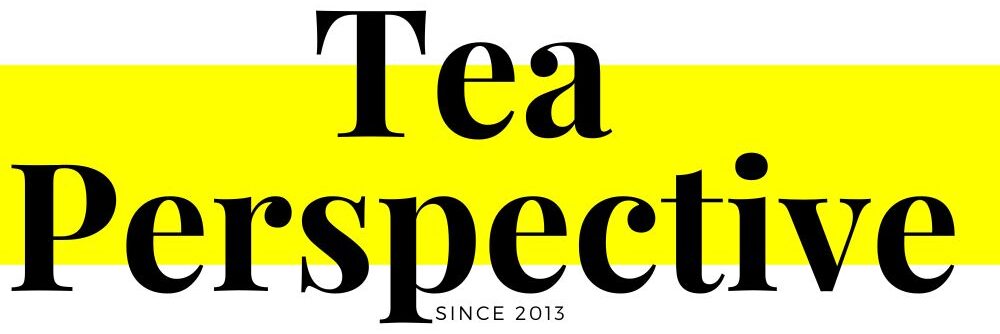Does chamomile tea have caffeine? No, chamomile tea is completely caffeine-free. Chamomile tea belongs to the herbal tea category, which does not contain caffeine.
What better way to unwind than to sip on some hot chamomile tea? When it comes to relaxation and tea, many people will think of the same thing — chamomile.
Most traditional teas contain some element of caffeine, but not too much. This is why many people opt for tea as an alternative to coffee. It serves as a great pick-me-up during the day, without too much of a buzz, well for most people.
But how come this isn’t the case with chamomile tea? Let us break it down for you.
So, if you’re searching for a caffeine boost, chamomile tea should not be your beverage of choice. But, this doesn’t mean you should stop drinking it. In fact, this article might urge you to drink more of it once you find out about its benefits.
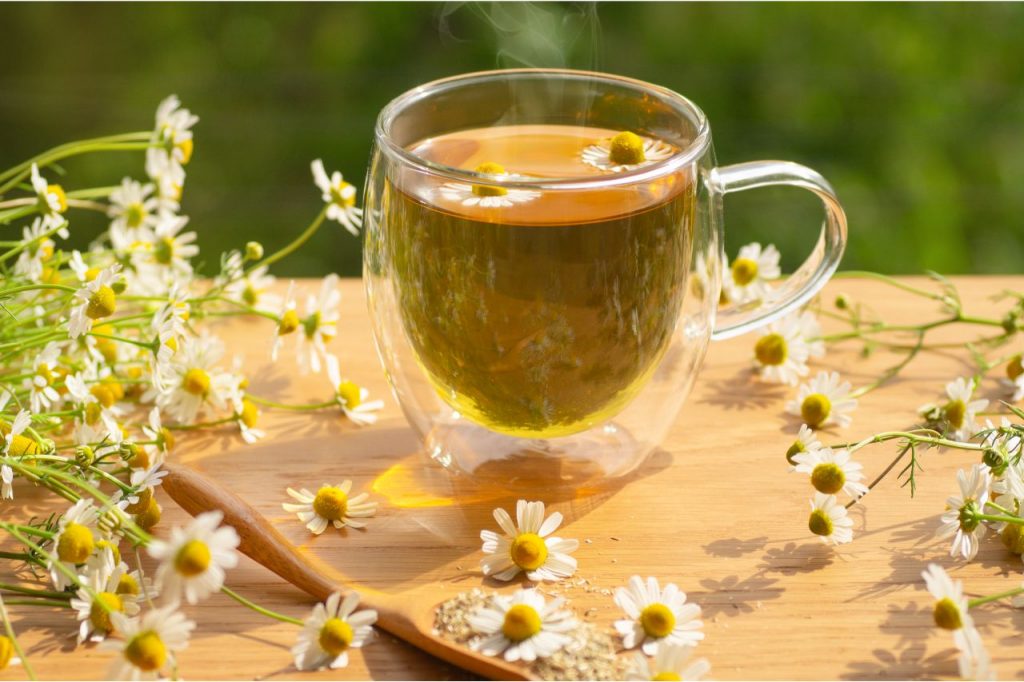
What is Chamomile Tea?
Chamomile is a member of the Asteraceae family and is one of the oldest herbs. The plant yields little, daisy-like blossoms that harvesters dry and steep in water to prepare a tea. Since chamomile is a herb, it is part of the herb tea category.
Chamomile tea is a mildly sweet, floral-flavored herbal infusion. You can savor it cold on a sunny day or a cozy evening. Some even experiment with new chamomile recipes by adding ingredients like spices, florals, and more herbs.
The flowery flavor of chamomile goes wonderfully well with a dash of honey or a slice of lemon.
Steeped in its purest form, Chamomile tea is also known as “sleep tea” due to its soothing, relaxing, and calming characteristics. The absence of caffeine also aids this.
We are also aware that caffeine does not promote sleeping or soothing qualities; it produces the opposite impact.
So, what are herbal teas?
What are Herbal Teas?
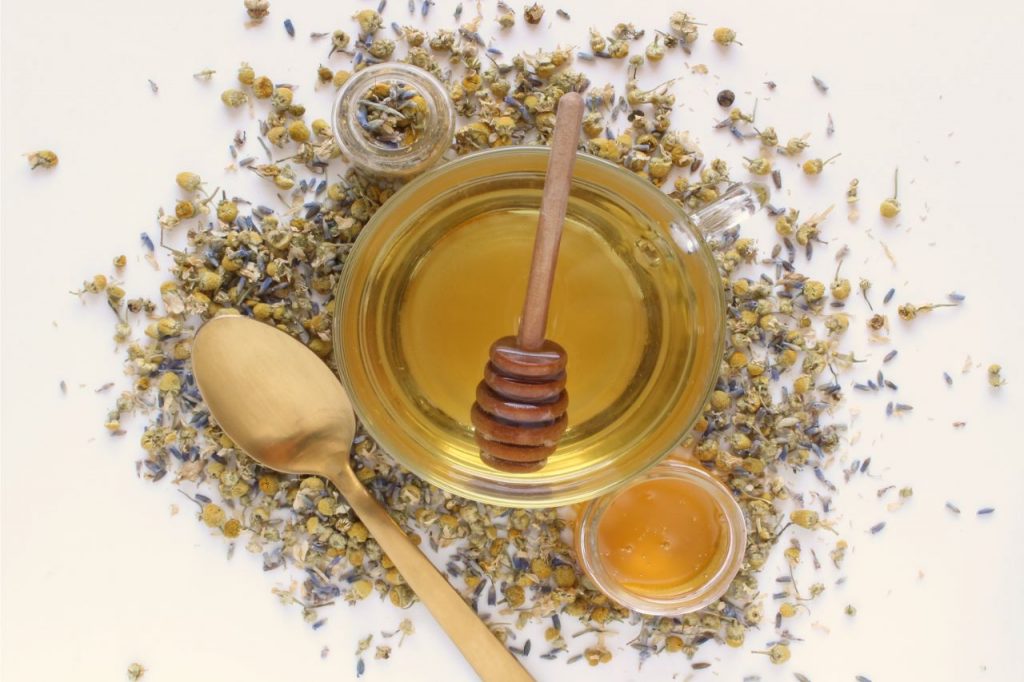
Herbal teas are technically not teas at all. True tea is derived from the shrub-like leaves of the Camellia sinensis plant. However, “herbal tea” is a simplified term for plant-based teas that are not derived from the tea plant, like, spices, herbs, florals, and barks.
Herbal teas are essentially tisanes since they do not include tea plant leaves. Some brands still use the term “tisane”. However, the majority use “herbal tea.” They are also entirely caffeine-free.
Did you know that the law requires companies to include labels on their packaging if they serve caffeine-containing herbal tea? This is important for keeping kids and other sensitive individuals from mistakenly drinking caffeine.
Common herbal teas include chamomile, mint, ginger, and rooibos.
The Different Types of Chamomile Tea
Chamomile is much more than an ornamental garden flower. People (since 500 B.C) have used it for health purposes. The herb grew in popularity as a natural cure for fevers and influenza in the 15th and 16th centuries.
Even now, people turn to chamomile as a plant-based remedy to calm and soothe.
When searching for chamomile, you may encounter many types, primarily German and Roman chamomile. Both are the two most prevalent chamomile varieties. You can also find these forms of chamomile in essential oils since they include aromatherapy characteristics for relaxation and tranquility.
However, there are a few notable distinctions between these two forms of chamomile:
Roman Chamomile
- According to its scientific name, this plant is also known as Chamaemelum nobile, or “genuine chamomile,” according to its scientific name.
- Unlike German chamomile, which has a milder taste, this kind may be more pungent and even sour at times.
- Known to relieve tension and induce sleep
German Chamomile
- Matricaria chamomilla, or “false chamomile,” is the plant’s botanical name.
- It is suitable for tea consumers who like lighter-tasting teas with a sweeter, more delicate taste.
- Relieves tension and induces sleep
How Come Chamomile Tea Is Caffeine-Free?
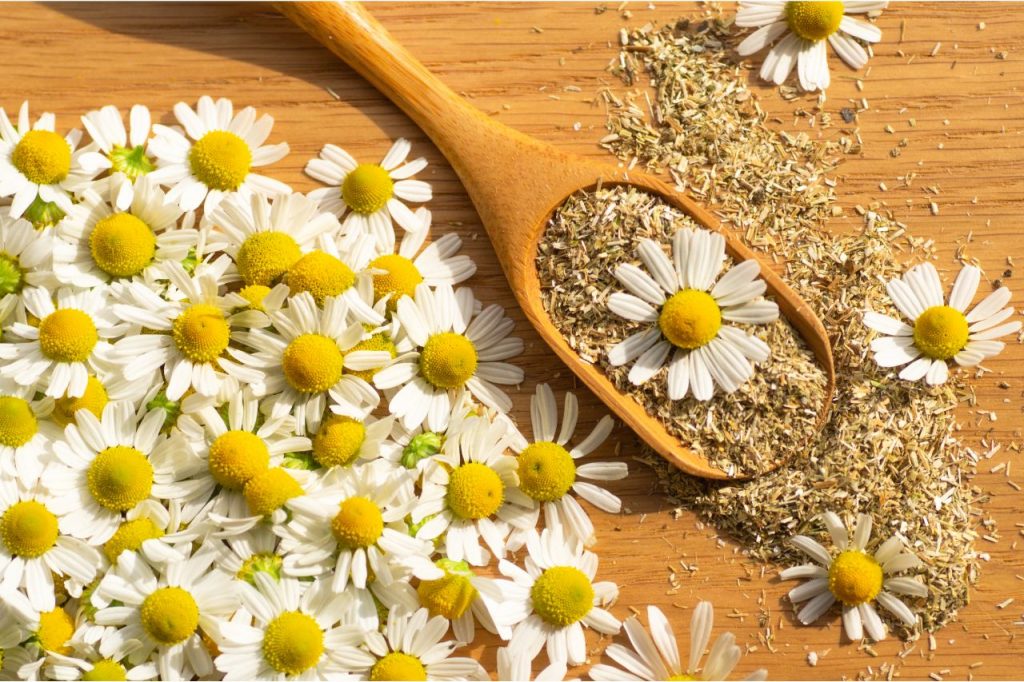
The amount of caffeine in a cup of tea depends on the kind of plant it comes from. The Camellia Sinensis plant produces a variety of energizing teas, including white tea, black tea, green tea, and oolong tea. Caffeine comes from this plant in various concentrations.
However, when it comes to the herb chamomile, it originates from the chamomile’s flowers. Most people easily mistake chamomile for a daisy. For this reason, along with other ornamentals like zinnias, chrysanthemums, and marigolds, the chamomile flower and the daisy belong to the same Asteraceae family.
Caffeine can exist in certain herbal teas, though there are no species of chamomile that contains any element of caffeine.
As we previously mentioned, most herbal teas do not contain caffeine. However, a few exceptions to this rule exist, one of which is Yerba Mate.
Can You Add Caffeine to Your Chamomile Tea?
Sure, if you really wanted to. We know chamomile tea doesn’t contain caffeine, however, this doesn’t mean you can’t add some to it.
If you want a caffeine kick and chamomile simultaneously, make your own blend at home. It’s fairly easy.
Take a cup or a pot (depending on your preferences) and steep some tea leaves. You can choose black tea, Assam tea, white tea, and more. Once it’s done steeping, add a chamomile tea bag or some fresh chamomile flowers. Afterward, let it steep for a few minutes.
If you only have tea bags at home, that’s fine too. Just combine the caffeine-free chamomile tea bag with a normal caffeinated tea bag. Let it steep for a few minutes, and there you have it.
On the other hand, if you want to use both fresh tea leaves and chamomile flowers, you can. Combine them in a bot, let them simmer for 3 to 5 minutes, drain, serve, and enjoy! If you want to add a pretty touch, leave some chamomile flowers on top of your cup.
The longer you leave the tea and herbs to simmer, the more flavor you will get.
If you want less caffeine, soak the standard tea bag or tea leaves for a shorter period of time before adding the fresh or dried chamomile flowers. You will ultimately get the desired equilibrium after a few attempts.
So, what are the benefits of drinking chamomile tea?
The Amazing Benefits of Drinking Chamomile Tea
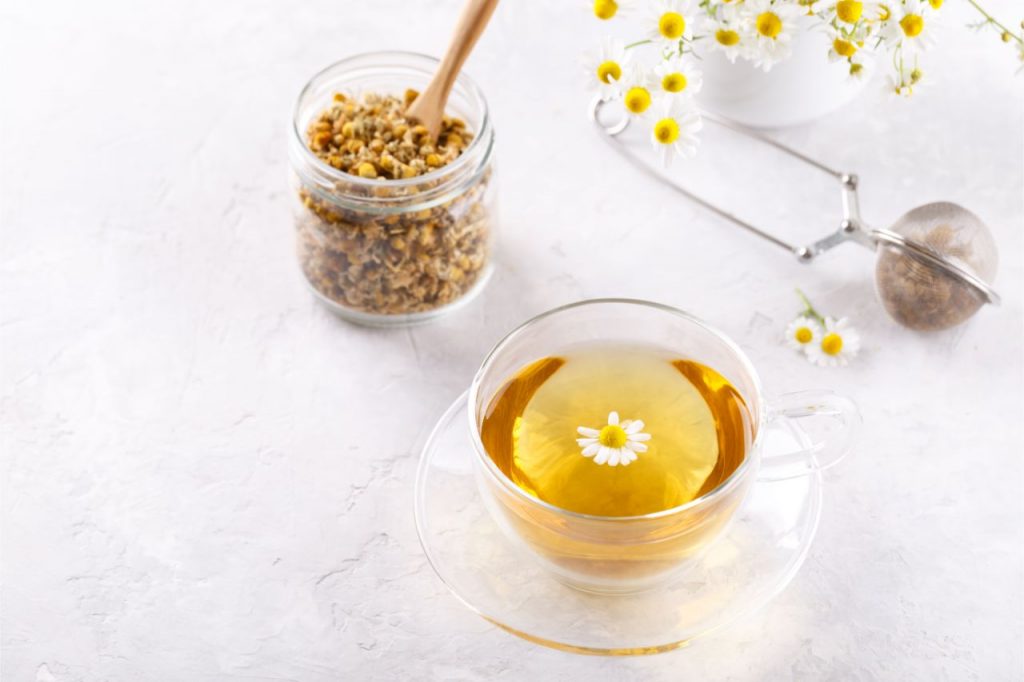
Chamomile has several remarkable health advantages, including enhanced sleep and digestion, less anxiety, and healthier skin.
While chamomile tea has little to no adverse effects for most individuals, those with solid seasonal allergies may not take it adequately, nor should pregnant women or those taking blood thinners.
Otherwise, steep into these significant health advantages:
You Sleep Better and More Relaxed
Not only is chamomile light and mildly sweet, but the herb is a perfect sleep aid since it doesn’t push your body into anything. It doesn’t drowse you out nor drug you.
Drinking chamomile is like receiving a slow, soft massage; it is mild, soothing, and very effective.
Research and studies back these benefits, too. After drinking chamomile tea per day for two weeks, new mothers discovered that they slept better (but it was not clear whether the benefits were long-lasting).
Another research article published in the Journal of Education and Health Promotion indicated that elderly patients who took chamomile extract slept substantially better than those who didn’t.
Scientists believe that Apigenin causes these effects. Apigenin is a flavonoid present in chamomile that binds to brain receptors that promote sleepiness.
Aids Digestion
The antispasmodic properties of chamomile may be a lifesaver when it comes to digestive issues, as it helps lessen spasms inside the body, particularly the stomach and intestines.
Sesquiterpene lactones, which are bitter chemicals that stimulate the pancreas to create digestive juice, are also present.
Chamomile’s relaxing impact on the body makes it especially beneficial for digestive difficulties caused by stress, such as an anxious tummy.
PMS Relief
Chamomile does not alleviate menstrual cramps directly. However, chamomile airs sleep and weariness in the long run. Recent studies also have a correlation between poor sleep quality and more severe menstruation issues.
What Does Chamomile Tea Taste Like?
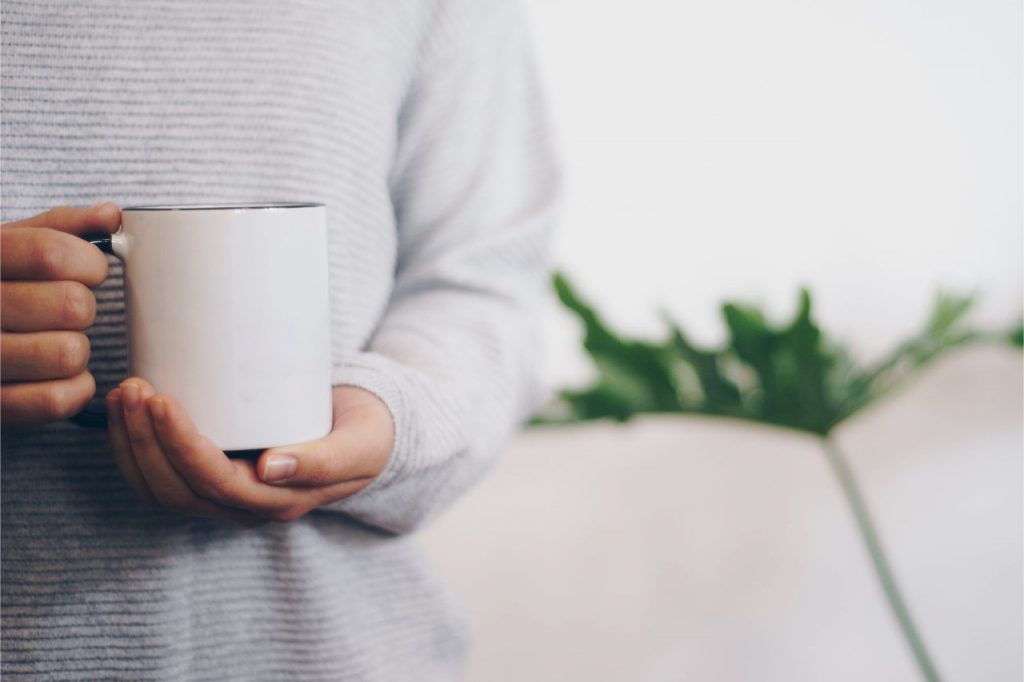
The flavor and scent of chamomile tea are heavy, balmy, and earthy, with flowery and fruity undertones. It has a strong medicinal taste if it’s soaked too long.
Well, that’s how I would describe it…
How to Get The Most Out of Chamomile Tea
Drinking too much chamomile tea may have relaxing effects, although very mild, like everything in life, moderation is tea. Oops, I meant moderation is KEY!
It’s okay to drink up to three cups a day (or roughly 24 ounces/700 ml) since that’s about the safest quantity to consume while still getting the relaxing benefits.
The best time to consume chamomile tea depends on your own preferences and what you want to use it for. It’s best to consume it 30 minutes before bedtime if you’re having trouble sleeping or are suffering from insomnia.
If you truly need to unwind, have an additional cup a few hours before going to sleep.
The Bottomline
Caffeine or not, you can never go wrong with chamomile tea. Whether you’re looking for a natural sleeping aid or a plant-based remedy, chamomile can help.
It’s one of the most popular herbal teas out there — and for good reason.
